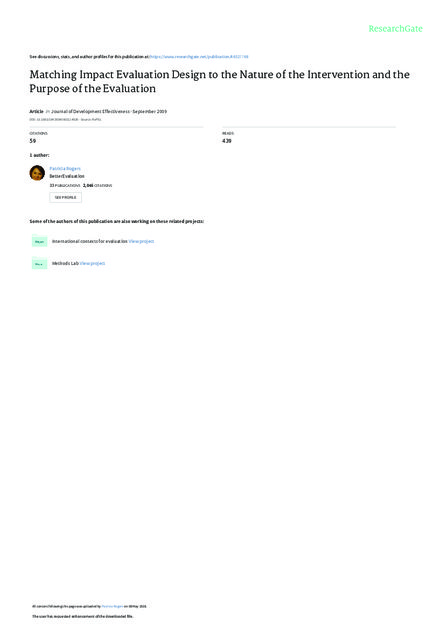
Appropriate impact evaluation design requires situational responsiveness - matching the design to the needs, constraints, and opportunities of the particular case. The design needs to reflect the nature of the intervention and the purposes of the impact evaluation. In particular, impact evaluation needs to address simple, complicated, and complex aspects of the intervention. Simple aspects can be tightly specified and standardised; complicated aspects work as part of a causal package; complex aspects are appropriately dynamic and adaptive. Different designs are recommended for each case, including RCT, regression discontinuity, unstructured community interviews, Participatory Performance Story Reporting, and developmental evaluation.